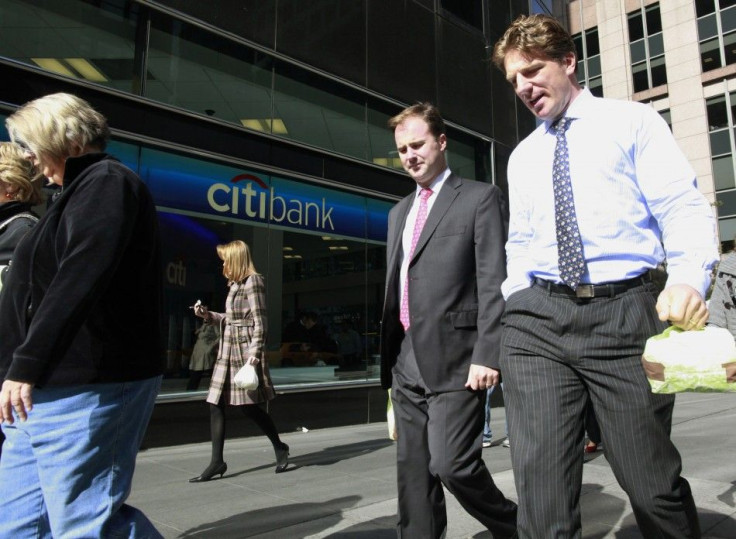US Regultors Probing Into The Escalating Libor Scandal
U.S. Building Criminal Evidence Against Banks Caught In Rate-Rigging

The Bank of England's push for stringent regulatory reforms in the wake of the interest rate rigging scandal in London could put an end to U.S. regulatory leniency of big American banks.
Taking inspiration from global regulatory investigations into the interest rate manipulation, the U.S. federal prosecutors are gathering evidence of criminal wrongdoing by big banks believed to be at the heart of the multiyear scam.
The U.S. Justice Department is developing criminal cases against several global financial institutions and their employees, including traders at British bank Barclays (NYSE: BCS), The New York Times reported on Saturday. One of the officials anonymously told The Times that the authorities were expected to slap charges against at least one bank later this year.
Last month, just a few days after Washington and London zeroed in on a $450 million settlement with Barclays in the rate-rigging incident, the Bank of England Governor Merwyn King spoke about the need to separate investment banking from retail banking and fix benchmark rates on the basis of actual transactions rather than vague estimations.
The hefty settlement Barclays agreed to pay does not protect it from criminal prosecution. By manipulating the London Interbank Offered Rate, or the Libor -- one of the world's most important benchmark rates because it largely determines borrowing costs of financial products including credit cards, mortgages and student loans -- from as early as 2005, Barclays is alleged to have endangered a financial market worth about $360 trillion.
Other banks, including HSBC (LON: HSBA), Bank of America (NYSE:BAC), JPMorgan Chase (NYSE: JPM), UBS (NYSE: UBS), Deutsche Bank (NYSE: DB), Citigroup (NYSE: C) and the Royal Bank of Scotland (LON: RBS), are also suspected to have colluded with Barclays to rig the Libor.
U.S. regulators have long been criticized for being soft on large financial institutions even during the years that preceded the financial meltdown in 2008. Till now, they have been a witness to large banks upstaging them, a former Securities and Exchange Commission (SEC) official, who requested to be unidentified, said.
Wall Street, under the George W. Bush administration, won the Securities and Exchange Commission (SEC) over during the rising tide of the financial crisis, when staff members from the Treasury, House Financial Services and the Senate Banking Committee were meeting on Capitol Hill to chart out a bailout package and an appropriate budget strategy to keep the U.S. government running. Representatives of all three bodies were toiling away through the weekend that followed the crash of Lehman Brothers on Sept. 15, 2008.
As the industry captures federal agencies, as history has now shown they can, the settlements between a captured regulator and the regulated make a mockery of our system of government and negates the protection of the public and 'the greater good', said Lynn Turner, a former chief accountant at the SEC and a director on the board of a $40 billion pension fund that was heavily invested in Citigroup at the time of an infamous lawsuit against the New York-based bank. Citigroup faced allegations that it had misled investors by selling them a $1 billion mortgage security fund, in which it cherry-picked assets that it then bet against when the U.S. housing market began showing signs of distress.
As the U.S. steadily wakes up to the evils of regulatory capture, where watchdogs are lenient on powerful banks and institutions, banks are petitioning European Union (EU) governments to ward off the reforms that are coming their way. As the possibility of criminal charges looms, many financial giants, including two European firms, are clamoring for settlement deals with the government, The New York Times reported, citing lawyers close to the case.
Meanwhile, global civic organizations are protesting against the powerful bank lobby and demanding that bankers be put behind bars. Big banks have been ripping off millions of people on their mortgages, student loans and more, lobbyists from Avaaz.org, a worldwide civic group, said in a campaign statement. We'd go to jail for this, but Barclays bank has only been fined and just a fraction of their profits. Outrage is mounting.
The EU finance regulator, Michel Barnier, is standing up to the powerful lobby -- an event that is raising public hopes of fairness and accountability in the global banking system.
Even as the global financial community is rife with speculations about whether banks will face criminal prosecution, U.S. cities, states and municipalities, including New York and Connecticut, are digging into their records to find out whether they have suffered huge losses due to the rate manipulation. Many private investors have filed lawsuits too.
If criminal prosecutions of individuals and banks involved in the massive scam go through successfully, it will be a signature moment to hold financial behemoths accountable for their offenses as early as the lead-up to the financial crisis, which engulfed global markets in late 2007. The criminal probe is also expected to cost the banking industry tens of billions of dollars.
© Copyright IBTimes 2024. All rights reserved.




















